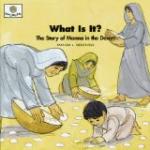The Honourable Mary’s nondescript mother sat patiently waiting the decisive moment which would see her en route once more to tea in her bedroom and the last chapter of a Hichens novel, as she had patiently awaited decisive moments for years, having uncomplainingly allowed the reins which controlled the large estate, and large fortune, to slip into the large, capable hands of her daughter, just as she had also either as uncomplainingly criss-crossed the world in the wake of her daughter’s unaristocratically large footsteps, or submissively remained at home for the hunting, in which field the Honourable Mary excelled.
Diana Lytham, spinster, through no want of trying to remedy the defect, expert at bridge, razor-edged of tongue, but still youthful enough to allow the lid of Pandora’s casket to lift on occasions, also to be described by those who feared the razor-edge as petulant instead of peevish, and cendree instead of sandy, passed the tedious moments of waiting in a running commentary upon the idiosyncrasies and oddities of the people and refreshments of the past hours, with a verve which she fondly believed to be a combination of sarcasm and cynicism, but which, in reality, was the kernel of the nut of spitefulness, hanging from the withering bough of the tree of passing youth.
She, having an atrocious seat and knowing it, with the excuse of England’s winter dampness had fled the hunting. The Gruntham’s younger generation, knowing not the difference between a hunter and a carriage-horse, had not given the subject a thought, but Mary Bingham had made a whole-hearted sacrifice of the month she loved best because, although loving her horses with a love of understanding, she knew that the love in her heart for just the one man, was a love passing all understanding whatsoever; feeling, therefore, that the sacrifice brought its own reward in the qualified bliss of being near the one man of her heart, whilst he passed weeks and months in the vain endeavour to find their friend, who had been lost to them in the land of the long-dead Pharaohs.
“Most annoying indeed—great negligence on the part of the city police to allow a hold-up like this at this hour of the afternoon. No wonder Egypt’s in the mess of ruins it is if this is the way traffic has always been regulated,” fumed and fretted Sir Timothy, whilst Mary Bingham twirled her sunshade over her hat and gazed unseeingly at the domes, cupolas, and minarets of the distant mosque of the Mohamet Ali; and the thin heir of the race of Gruntham pondered upon the allurements of the yashmak, which hid all but the eyes of the few Eastern women who glanced timidly in passing at the occupants of the motor-cars.




